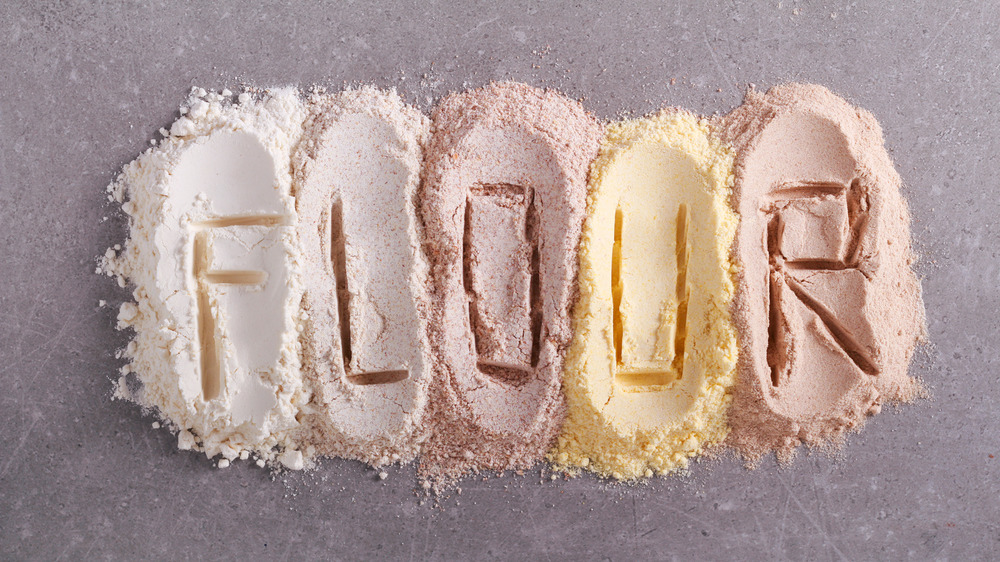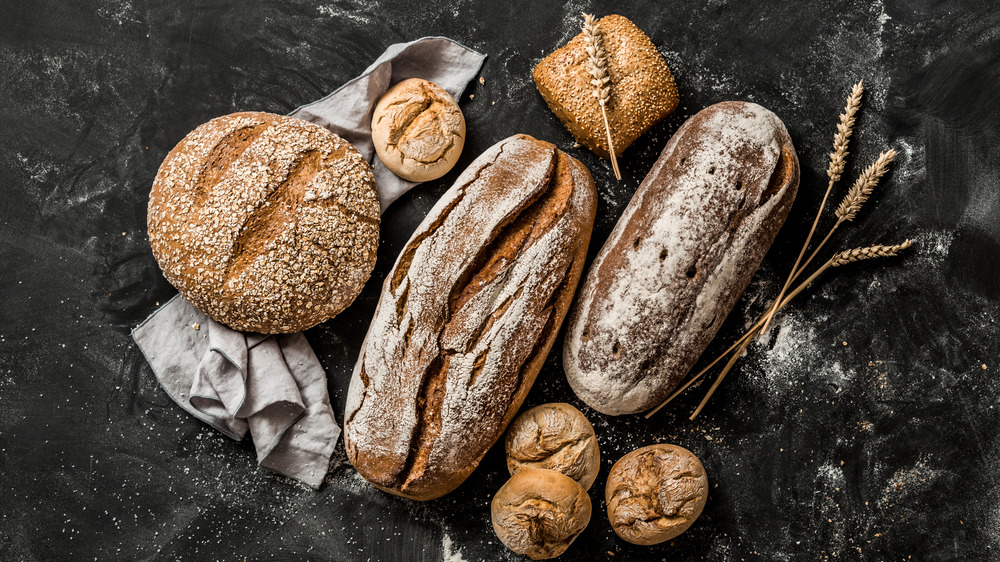Here's What You Should Be Choosing Instead Of White Flour
Have you ever measured out the all-purpose flour needed for the bread or pastry you're making, and felt a slight pang of guilt? Has that little voice at the back of your mind questioned if you should be using some other kind of flour that's more ... nutritious?
Whether it's because of celiac disease, a gluten intolerance, or just a desire to include more healthful grains in your diet, great, nutritious options abound for replacing the white, all-purpose flour in your recipes. Abbey Sharp, R.D., of Abbey's Kitchen, told SELF, "There are so many alternative flours you can work with nowadays, each with its unique flavors and baking properties." Possible alternatives on the market range from almond flour to coconut flour, cassava flour to arrowroot flour, tapioca flour to sweet potato flour. For the purposes of this article, we'll go over just a few alternatives that are most similar to the ubiquitous white, all-purpose flour.
Different flours offer better nutritional value
Whole Wheat Flour. Substituting part or all of the white flour in a recipe with whole wheat flour adds a nutritional punch. Gena Hamshaw, a registered dietician with The Full Helping, says, "Whole wheat flour contains all parts of the wheat berry in its whole form: bran, germ, and endosperm. This makes whole wheat flour significantly higher in fiber than white flour." (Via Real Simple.) It's also a rich source of iron and protein, and adds an earthy, nutty flavor and hearty texture to baked goods. However, it's not an option for those who are gluten-intolerant or have celiac disease.
Brown Rice Flour. Since rice is naturally gluten-free, this is an excellent choice for those who need to avoid gluten. Hamshaw adds, 'Unlike many gluten-free flours or flour blends, brown rice flour is minimally processed." Made from finely-ground whole grain brown rice, it's high in fiber, protein, iron, zinc, and other nutrients (via Nutrition Data).
Spelt Flour. Spelt is an ancient grain which is actually a form of wheat, and therefore does contain gluten, making it a non-option for those with celiac disease. However, "Some people who find wheat difficult to digest have an easier time digesting spelt, possibly because it contains less gluten than conventional wheat." This may be because spelt has less hard-to-digest carb called fructans than wheat does (via Woman's Health Magazine). It also has a light, mildly nutty flavor that works well in all kinds of baked goods.


